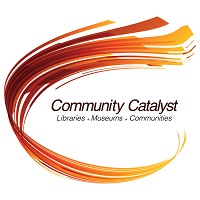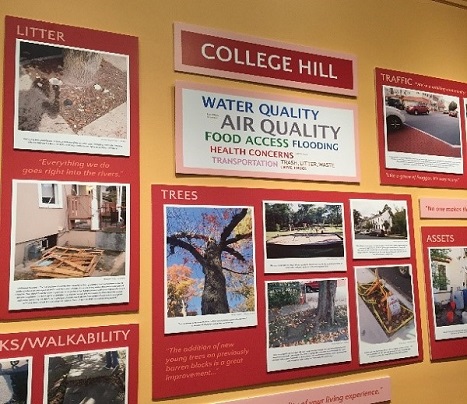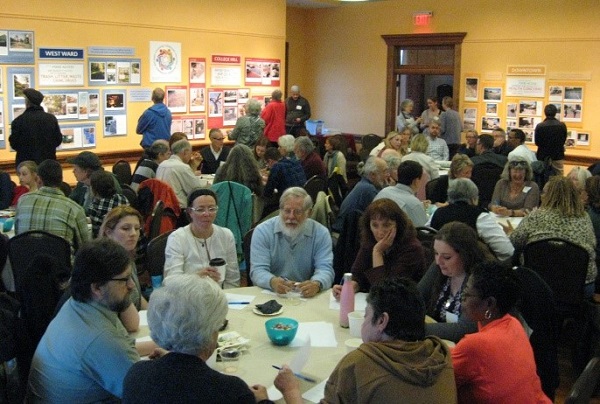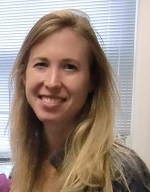Blog Posts | January 17, 2017
Share This
Editor’s Note: This past fall, IMLS launched Community Catalyst, a new initiative aimed at sparking a conversation around ways to help libraries and museums develop a deeper understanding of the best ways to work with communities to bring about positive change. Through a cooperative agreement with Reinvestment Fund, the agency scanned the literature and gathered input from the library, museum, and community revitalization fields. The results of that scan are part of a newly released report (PDF, 28MB). This is the latest in a series of blogs this month highlighting the initiative.
By Dr. Katherine Semmens
Nurture Nature Center
When I became the Science Director of Nurture Nature Center (NNC), a science-based community organization in Easton, Pa, I was expecting to work on our natural science exhibits. Instead, my first project was managing a community outreach project, an effort that required me to shift to a social science perspective. The project, generously funded by IMLS, was a rewarding learning experience for me personally, in addition to benefitting NNC.
Diving into community engagement allowed me to gain familiarity with the area and understand the valuable role that NNC can play as a community anchor and catalyst. We called the project Easton Matters, reflecting a sense of community, and asked our residents: “What local environmental issue matters most to you?”
NNC was founded after Easton flooded three years in a row. The floods set the stage for our work, and taught us that urgency of risk can rivet attention, motivate interest in learning, and build lasting relationships that create networks of information exchange. We developed a model for community dialogue that facilitates productive discussion about local environmental risks. Important to the success of our model is including art, which allows self-expression to clarify personal thoughts and values.
Realizing flooding was not the only environmental concern, we wanted to extend our dialogue model to find out what other issues mattered to residents so we could help address needs and provide for dialogue and learning. That’s where Easton Matters came in. From 2014 to 2016, we conducted surveys, interviews, focus groups and walking tours in each neighborhood to find out what environmental issues mattered to our residents. The work culminated in a Photovoice/art exhibit showing photos by residents illustrating local environmental priorities and a citywide community forum.


It was a tremendous success. Our presence in the neighborhoods sent a strong message of caring and dedication and built our credibility as a community resource. We listened closely to our community’s voices and plan to develop programs that address the issues raised, which included litter and recycling; traffic, pedestrian safety and walkability; maintenance of sidewalks and street trees; better building re-use; and access to rivers, green space, and healthy affordable food. Importantly, we now have a large group of residents who champion our efforts, and volunteer, and help promote our events. I recently reflected that many faces we now see at NNC are people we met through Easton Matters. Those residents keep coming back, valuing the experience.
I also learned an important lesson in the process - I always considered ‘environment’ the natural systems that surround us (the atmosphere, forests, water, etc.) but our community understood it to span a broad spectrum of quality of life issues. I now understand ‘environment’ as the totality of one’s living experience which looks different in an urban setting. It was another beneficial shift in perspective, similar to the one I made my first days at NNC when I began the project. Our exhibits and programming do not exist in a void, and to serve our community, we need to understand what matters.

About the author:
Dr. Kathryn Semmens is the Science Director of the Nurture Nature Center, located in Easton, Pennsylvania. She has a Ph.D. in earth and environmental sciences from Lehigh University, a Master’s degree in marine policy from the University of Delaware and a Bachelor of Science in environmental studies from Ursinus College. Her responsibilities at NNC are to help advance the organization’s outreach efforts on scientific and environmental issues.
